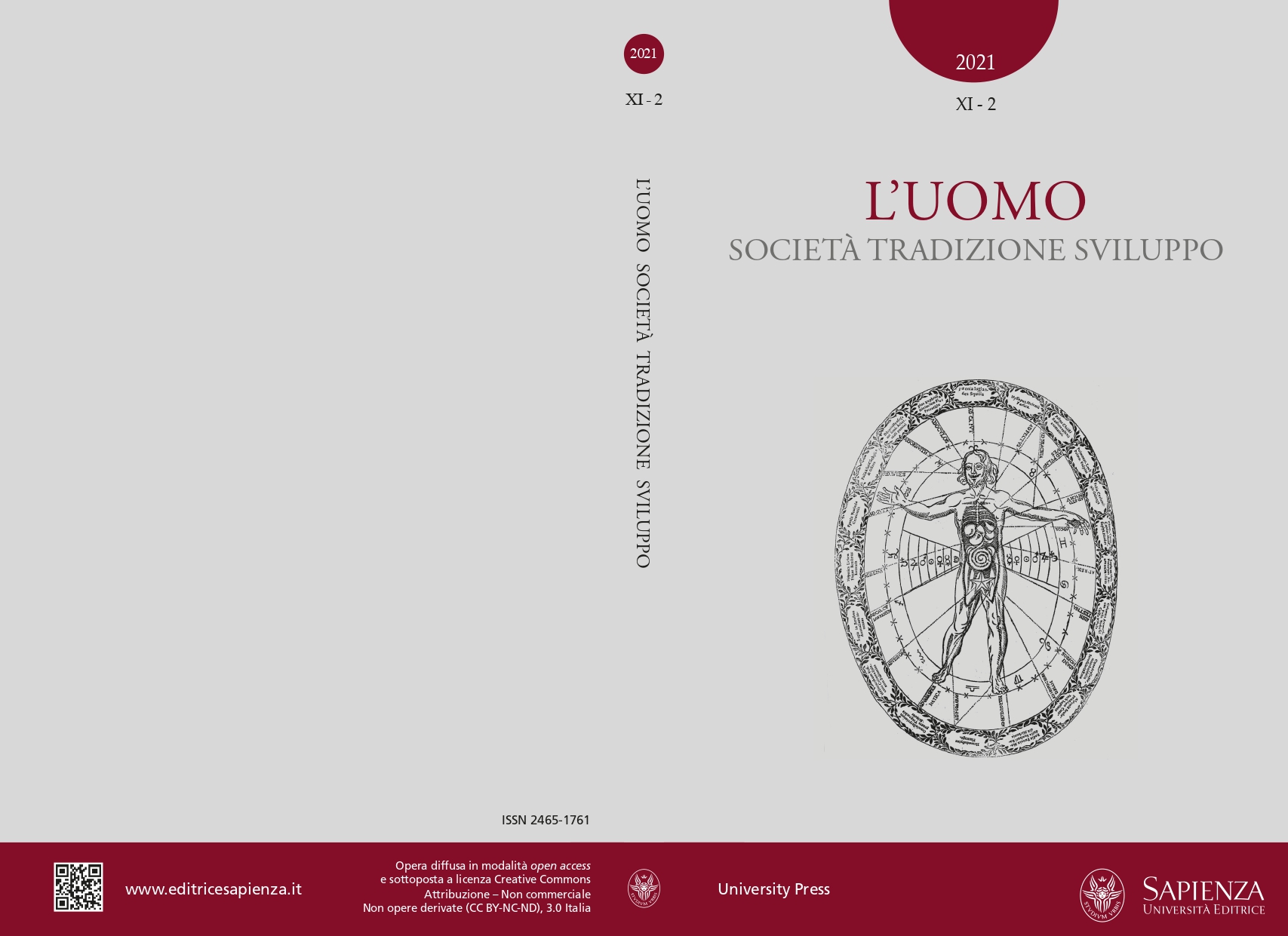Codividual
An anthropological testing
Keywords:
codividual, individual, ontology, mortality, participationAbstract
Arising at the confluence of Greek philosophy and Christianity, the individual is the product of ontological thinking that invented the concepts of being, substance and identity. Studying the theories of the person in different human societies, cultural anthropologists have deprived the individual of the universal meaning that the Western tradition has always attributed to it, and have used the concept of ‘dividual’ as an alternative. In analogy to what happens in biology, the author of this paper proposes instead the notion of “codividual” as a more solid and promising alternative. In particular, if the individual was invented to expunge death from the most authentic and profound human reality and to bring it closer to God (indivisibility as a guarantee of immortality), the “codividual” is instead configured as the result of the recognition of mortality and becoming. “Codividual” is a notion completely foreign, indeed opposed, to the ontology developed by Greek philosophy and later adopted by Christian theology. In this vein, the paper proposes an operation of explicit recovery and re-evaluation of Lucien L vy-Bruhl’s thought. L vy-Bruhl dedicated in-depth research to the ways in which societies – which he defined as primitive – conceive what we call the individual. L vy-Bruhl’s ethnographic pages become much more enlightening and convincing, if one substitutes “codividual” for “individual”. We assume that the result of this experiment will be twofold: we will obtain proof of the anthropological usability of the proposed concept and we will gain – thanks to L vy-Bruhl – an excellent definition of “codividual”, understood as a social and natural “place of participation”.


